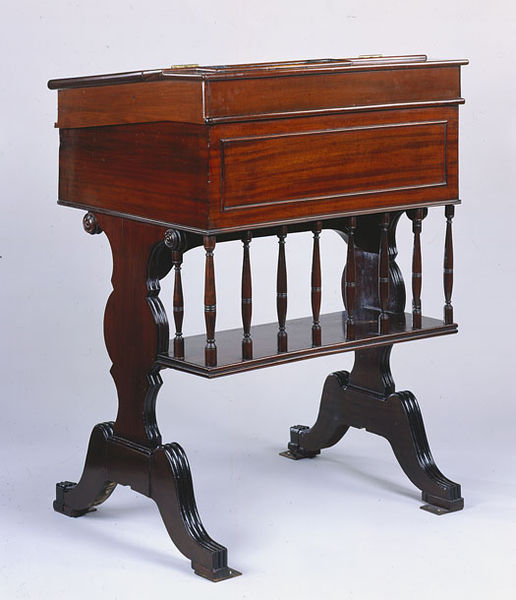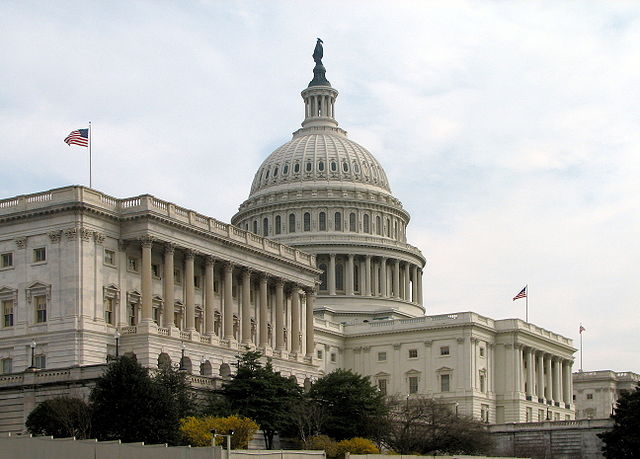Ambassadors of the United States
Ambassadors of the United States are persons nominated by the president to serve as the country's diplomatic representatives to foreign nations, international organizations, and as ambassadors-at-large. Under Article II, Section 2 of the U.S. Constitution, their appointment must be confirmed by the United States Senate; while an ambassador may be appointed during a recess, they can serve only until the end of the next session of Congress, unless subsequently confirmed.
President Kennedy with a group of ambassadors in March 1961
The United States Senate is the upper chamber of the United States Congress. The United States Senate and the lower chamber of Congress, the United States House of Representatives, comprise the federal bicameral legislature of the United States. Together, the Senate and the House maintain authority under Article One of the U.S. Constitution to pass or defeat federal legislation. The Senate has exclusive power to confirm U.S. presidential appointments, approve or reject treaties, and try cases of impeachment brought by the House. The Senate and the House provide a check and balance on the powers of the executive and judicial branches of government.
United States Senate
A typical Senate desk on the floor of the United States Senate
The Senate side of the United States Capitol in Washington, D.C.
Committee Room 226 in the Dirksen Senate Office Building, used for hearings by the Senate Judiciary Committee





